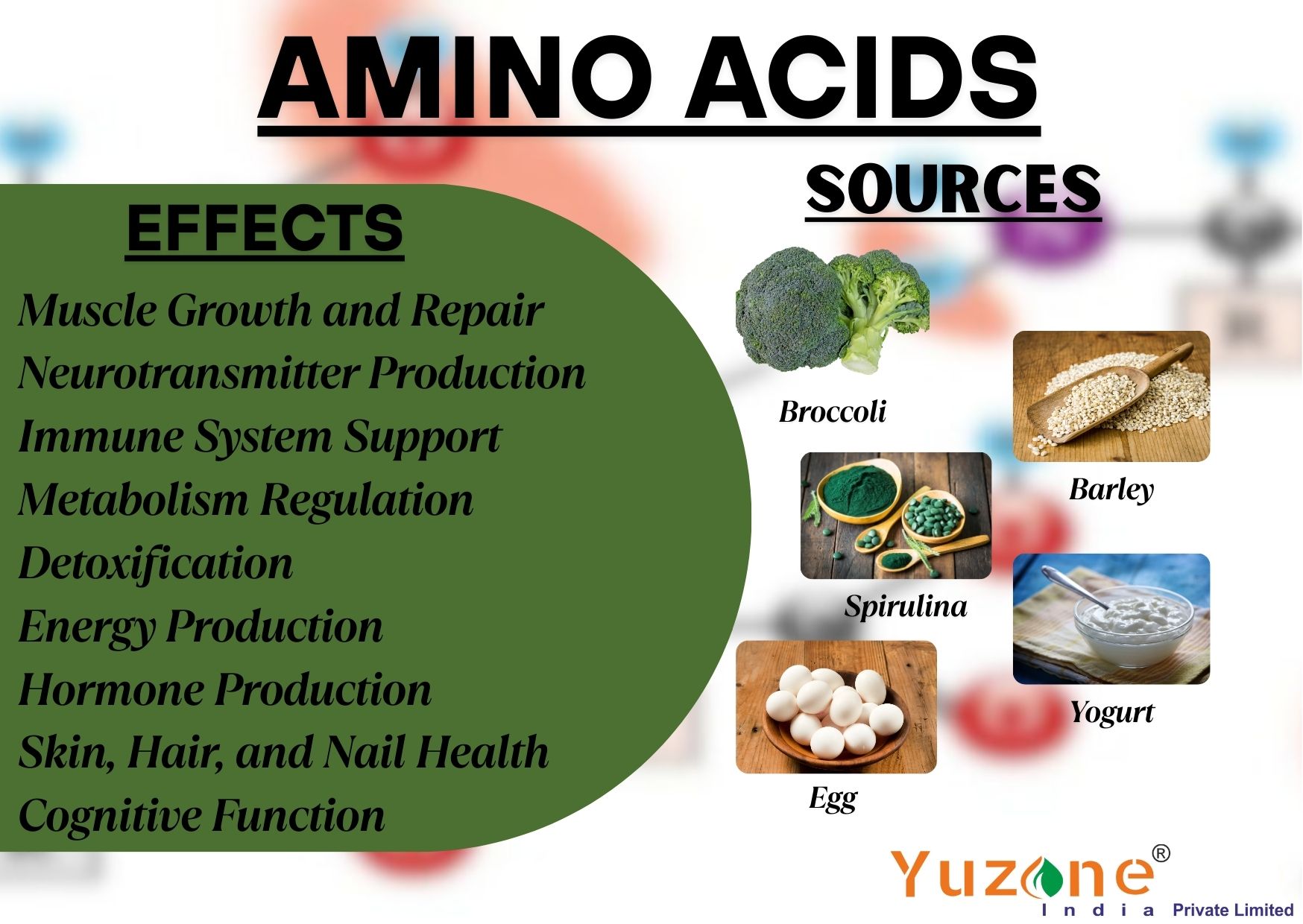
Amino Acids
Amino acids are the fundamental components of proteins, which are vital for the structure, function, and regulation of tissues and organs. Essential amino acids, especially branched-chain amino acids (BCAAs) like leucine, isoleucine, and valine, are vital for muscle repair and growth.
These amino acids are used during exercise to fuel muscles and promote recovery after strenuous activity. Amino acids, particularly glutamine, are important for the immune system. They help maintain the integrity of the gut lining and support the function of immune cells like lymphocytes. Amino acids like cysteine and glutamine play a role in detoxifying harmful substances. Cysteine is a key component of glutathione, one of the body’s most important antioxidants, helping to neutralize free radicals and toxins. Amino acids contribute to the production of hormones such as insulin, growth hormone, and thyroid hormones, which regulate processes like metabolism, growth, and energy balance.
Important usage of Amino Acids in our body are :-
- Muscle Growth and Repair
- Neurotransmitter Production
- Immune System Support
- Metabolism Regulation
- Detoxification
- Energy Production
- Hormone Production
- Skin, Hair, and Nail Health
- Cognitive Function
Types of Amino Acids :
- Essential Amino Acids: These cannot be synthesized by the body and must be obtained from food. Examples include leucine, valine, and lysine.
- Non-Essential Amino Acids: These can be synthesized by the body. Examples include alanine, glutamine, and asparagine.
Sources of Amino Acids:
- Animal-based sources: Meat, poultry, fish, eggs, and dairy products.
- Plant-based sources: Legumes, beans, nuts, seeds, and whole grains.
Amino acids are vital for muscle function, brain health, immune support, detoxification, and numerous other bodily functions. A balanced intake of all the essential and non-essential amino acids is crucial for maintaining optimal health.



Comments are currently closed.